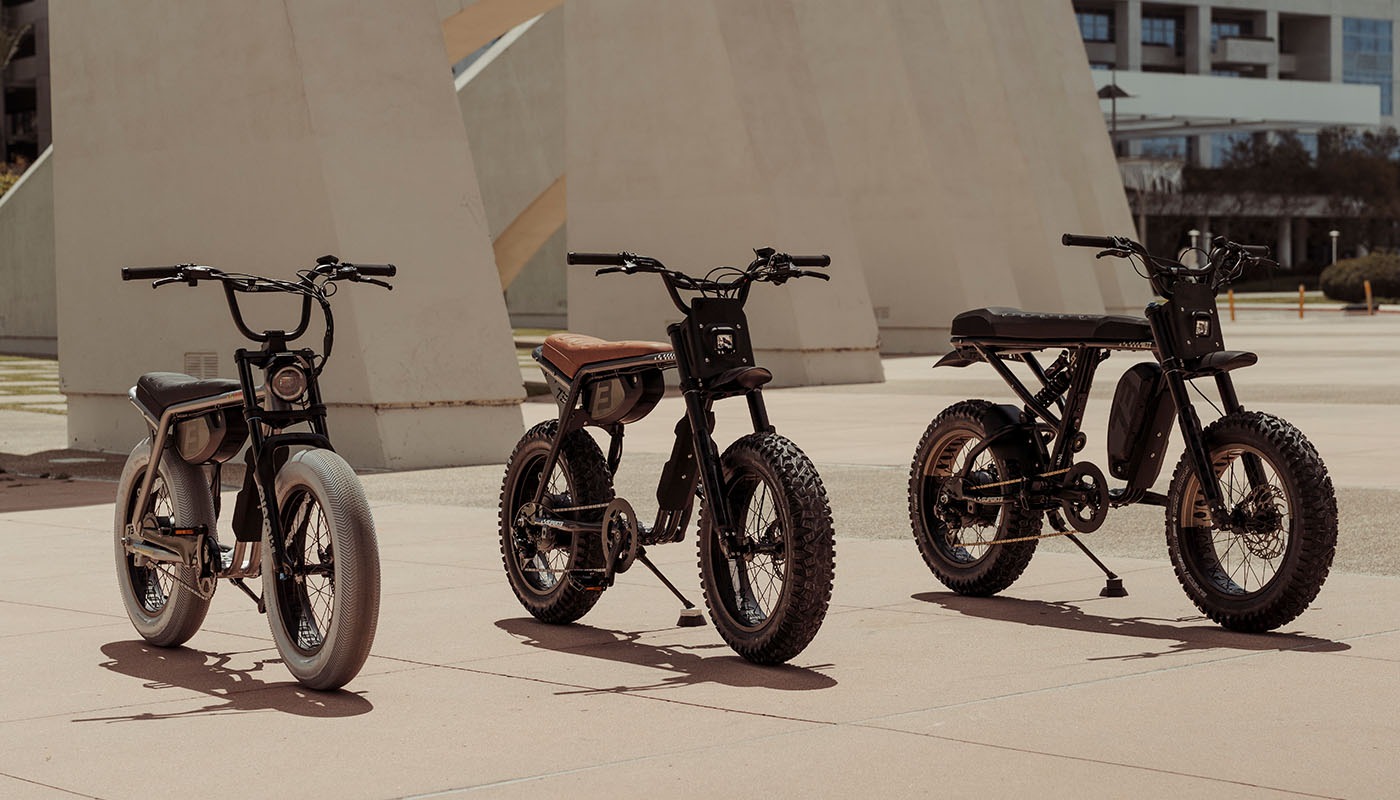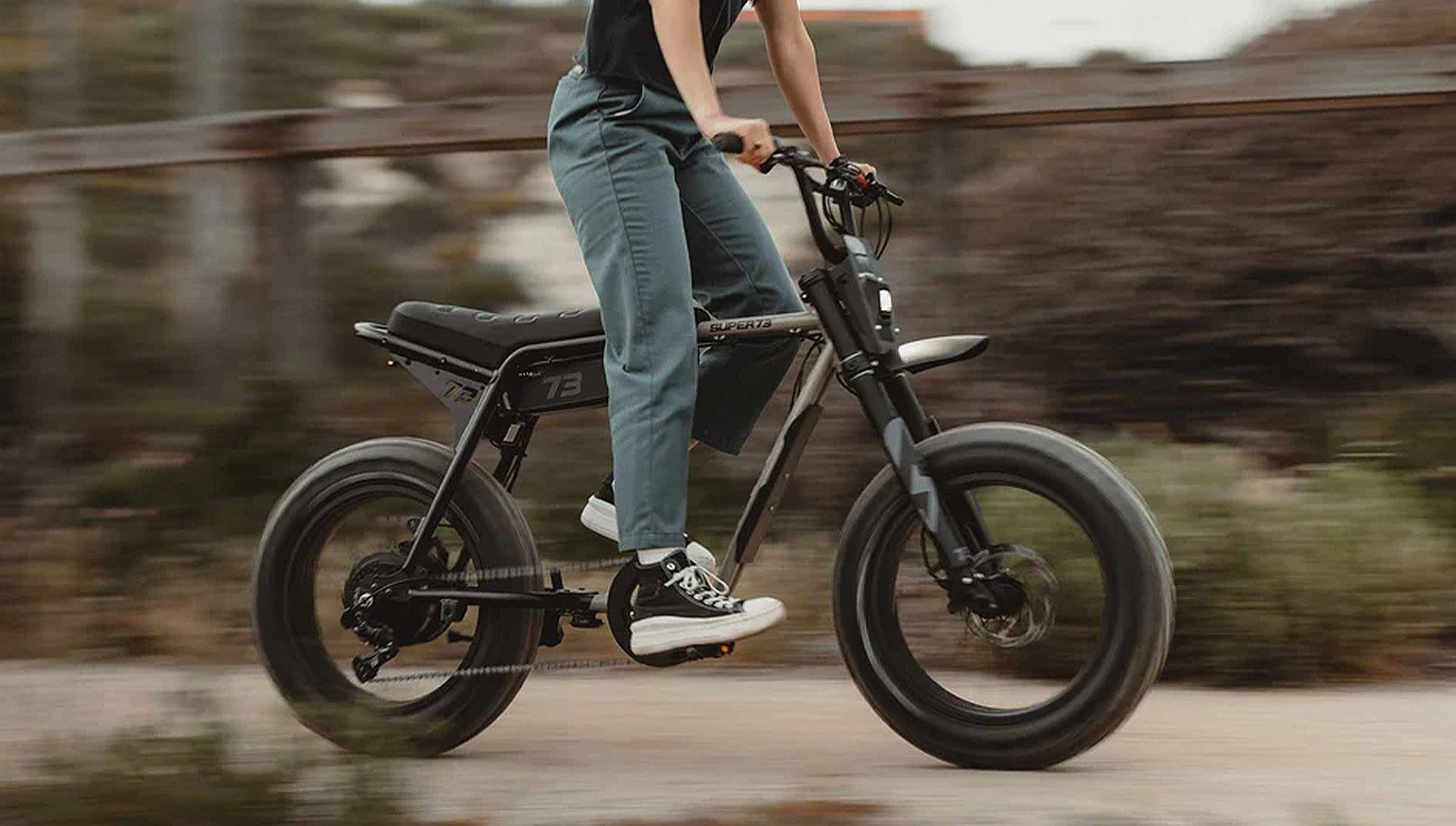The legal action initiated by Hillary Whitman, a resident of Fairfax, California, alleges that the Irvine-based SUPER73 Inc. has been marketing e-bikes that can exceed California’s speed limits for such vehicles when unlocked through an app.
While this practice is not explicitly forbidden under California law, a representative from SUPER73 informed the Marin Independent Journal that their bikes are classified as class 2 e-bikes, which can be adjusted to class 1 or 3 settings using the company’s app.

Allegations Against SUPER73 E-Bikes
Whitman brought the lawsuit after purchasing a SUPER73 e-bike for her 12-year-old son to use for school transportation, believing it to be a class 2 e-bike.
Under state regulations, class 2 e-bikes are limited to a maximum speed of 20 mph using a throttle. By contrast, class 1 and class 3 e-bikes feature pedal-assist motors, with speeds capped at 20 mph and 28 mph, respectively.
The inability to register the e-bike with her son’s school, as required for e-bikes, became a central issue. Whitman claims school officials informed her that “Super73s are not e-bikes and are illegal to ride.”
She further alleges that this statement was later confirmed by the Central Marin Police Authority. The lawsuit contends that had she known the bikes were deemed illegal, she would not have made the purchase.
Also Read: Renault Debuts Electric Mini Caravans and Scrambler at Paris Show
Speed Concerns and Legal Definitions
SUPER73 offers models equipped with throttles and the capability to switch among class 1, 2, and 3 settings. Through the app, users can enable an Off-Road mode, delivering 1,200-watt continuous power and 2,000-watt peak power, which allows the bikes to reach speeds exceeding 28 mph.
The lawsuit highlights instances of state law enforcement observing SUPER73 bikes operating at speeds between 35 and 38 mph.
California law mandates that e-bikes fall into one of three categories and prohibits motors exceeding 750 watts to qualify as e-bikes rather than motor vehicles.
The SUPER73 website includes disclaimers stating that their products are “For riders 16 years of age and older,” suggesting Whitman may have been aware of potential risks at the time of purchase.
Bob Mittelstaedt, a Marin County resident, retired trial attorney, and co-founder of the nonprofit E-Bike Access, has consistently urged law enforcement to recognize that companies like SUPER73 are selling products that do not align with California’s legal definitions of e-bikes.
Mittelstaedt likened the situation to a hypothetical scenario where a car manufacturer ships vehicles capable of high speeds but initially limits them, leaving it to users to unlock their full potential.
Also Read: 90 Miles on a Single Charge? This E-Bike is an Adventure Machine
SUPER73 has refrained from commenting on the lawsuit, which is set for a case management conference in May. However, the company has since updated its website to comply with regulations coming into effect in 2025.
A notice on the site now states: “In light of newly implemented regulations, customers who download and pair the SUPER73 app after January 1, 2025, will not have the ability to access modes other than the Class 2 mode in which the product is sold.”

